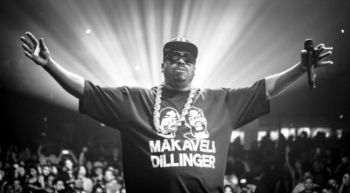Bishop T.D. Jakes, senior pastor of The Potter’s House mega-church in Dallas, participated in Thursday’sprogram at the National Association of Black Journalists’ convention in Kissimmee. Afterward, in an exclusive interview with Orlando Sentinel religion and minority affairs reporter Jeff Kunerth, Jakes spoke about race, religion and politics, and where they intersect.
Q: What does the reaction to the George Zimmerman verdict tell you about race relations in America?
A: What it really shows us is there is still a great deal of work to be done in the criminal-justice system to embrace and protect all American citizens. It also shows us how important it is that we have diversity of selection of juries to make sure we have incorporated a true representation of diversity that exists within the American community.
Q: What do you think of the ‘stand your ground’ law?
A: I think the Trayvon Martin case showed us there may be some situations in which the verbiage and the language restricts us from responding to our highest sense of morality. I would hope all of us would use it as an opportunity to examine all the various laws to broaden them for circumstances we didn’t anticipate when we developed the law.
Q: Do you think that law should be changed or repealed?
A: I’m bothered by the fact the jurors said they felt restricted by the description of the law. I don’t want any jurors to be restricted from their sense of right and wrong by the description of any law.
Q: What direction do you think we’re headed in? Are we coming together or drifting apart racially?
A: I think the conversations we are having, painful as they are, are healthy. We have a propensity to avoid the elephants in the middle of the room, or simplify the tragedies and adversity. But we should not be derelict in our responsibility to have those tough conversations. I think we have lost our ability not to talk but to listen.
Q: What role does religion, and the church, play in these discussions?
A: As long as the churches themselves are not as integrated as they should be, that insulation that exists when you only worship with people who look like you, vote like you and think like you affects your sensibilities on what that other person is experiencing. I think the church has a huge opportunity to be a conduit of reconciliation, but you can’t reconcile the country until you can reconcile your own pews.
Q: Why do we have so few multiracial churches?
A: It’s not just about racism when it comes to Sunday worship. It’s about cultural expressions, about dress styles, about your sensibility of hierarchy, structure and order. As long as we neutralize each other to the point we would negate the fact that we have these distinctions, then what passes for integration in churches will be one culture dominating another culture within the institution of religion. Integration is at its best when you allow me to be me, and I allow you to be you and we choose of our own volition to walk together.
Q: What do you say to those who say pastors should stay out of politics?
A: There are certainly just causes where there ought to be separations between church and state. But if the church is the salt of the earth, I would hate to think that we would be sprinkled everywhere but at the top of our government.
SOURCE: HuffingtonPost.com
Article Courtesy of Jeff Kunerth, The Orlando Sentinel and The Huffington Post
Picture Courtesy of Getty Images and The Huffington Post














